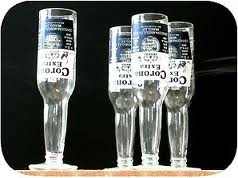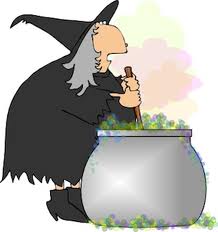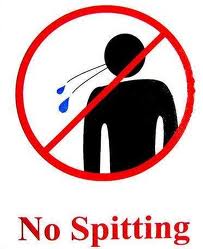We left the Daunting Debutantes, aka the “deb’s,” in something of a dilemma. They had lost their first four of five games, and unfortunately were sitting at the bottom of the barrel. A reawakening had occurred by the Shakespearean declarations made by “Bubba” that articulated her observations in a personal, less than sanguine attitude regarding their losses. Something to the effect that she was tired of getting “her sweet ass kicked,” which caused an immediate reevaluation by her fellow team members. It was now a war. (You have to read part one to understand what brought on this emotional outburst.)
The girls were collectively clearly uptight, and Bubba’s pronouncement broke the ice. As I mentioned in part one, after that they didn’t lose another game, but not without some interesting events. They really got into the spirit of things and had developed some pregame and postgame cheers that they would force the spectators to chant. I taught them the only one that I knew and it went, “Wreck-em, wreck-em ree, kick-em in the knee. Wreck-em, wreck-em rass, kick-em in the other knee!” For some reason, Blue-eyes nixed my contribution. I don’t know why, based on the language that I was hearing on my occasional visits to the dugout. The sweet young things knew some rather interesting words. My blonde roommate’s solution to this language problem was to teach them some Bohemian phrases that she had often used to get my attention.
At one point, the concept of chewing tobacco was brought into play, and of course, was discouraged rather emphatically. Bubblegum was suggested as an alternative, but was turned down by the majority of them who had braces and further said that “gum was bad for your teeth.” Like chewing tobacco is okay?
As an alternative there appeared a 400 pound bag of sunflower seeds and it invoked this massive shower of saliva-laden shells being evacuated throughout the dugout. The debs developed a little game to see how far one could expectorate a whole sunflower seed. Every so often, somebody would come out of the dugout and put a popsicle stick next to seed with the greatest distance. At one point, I expected my daughter, who was part of this routine, to come home and asked me how to propel this projectile further. I already knew my answer was going to be, “Talk to your mother!” I really wasn’t fascinated with the idea of being the father of the best “spitter” on the team. I came to the conclusion that there was far too much “pro ballplayer” emulation.
“Half pint” had probably blackmailed her brother into helping her with her new responsibilities as the starting catcher. It was paying dividends. He had taught her how to block the plate without getting killed, how to field a bunt and doing snap throws every once in a while, which she managed to do with some degree of success. She became a very good bunter, extremely fast and was the lead-off batter. She eventually became an All-Star. She had one minor defect and that could be called a bad temper, probably because she was vertically impaired. If she didn’t like a call the kid ump made, she let him know in no uncertain terms, using some rather less than ladylike language, or accusing him of having amorous interests in the batter. The umps were usually from the debs’ high school peer group. On more than one occasion, Blue-eyes would receive a phone call from the chief of umpires regarding the abuse of his relatively blind umpiring crew. (I ran into “half-pint” some years later, and she was clerking for a law firm and was close to a law degree. She probably made a good lawyer.)
It was mid spring and warm weather had begun. Part of my job description as assistant to the assistant, was to bring an ice chest with soft drinks and water for the team during practice sessions. I would of course, throw in a six-pack or so of adult beverage for the coaches. I’m not much of a beer drinker; one beer usually makes me want to go take a nap. However, after a couple of practices, I noticed that the adult beverages were extremely popular. Blue-eyes didn’t drink much beer, even though she was from Wisconsin. Bev was capable of knocking down at least one, but that was usually it. She was a “branch water and bourbon” afficionado. At the same time, I detected a little more giggling in the dugout than usual. What I found out was our sweet young ladies were taking some of the soft drinks, emptying the contents and going into the little girls room filling the can full of Corona light and passing this around the dugout. From that point forward the “brew-skis” were in a smaller container which never left my sight. God- kids grow up in a hurry!
The season ended with the “Debs” winning the whole “shootin” match, and had eight players named to the all-stars. As winning coaches, Bev and Blue-eyes ended up as managers of this team for tournament play. This means that you play other teams in your district. If you win, you get to go play in a regional tournament and so on. All this tournament play is what’s called double elimination, and no one in our particular league had any idea of what to expect. Our anticipation was early elimination, as had been experienced in the boys’ tournament play. It was almost like starting over, trying to figure out the best place for this conglomerate of skill sets.
The practice sessions went pretty well, but not without incident. During a practice session the team lost Stacy, an outstanding shortstop and a good backup pitcher, to a broken ankle caused by a needless slide into second base. When she hit the bag I knew she was toast. Fortunately, her mother was there and took her to the hospital. The next practice, she showed up on crutches in her pink cast to cheer the team on.
The second incident was one of our better hitters fell off a horse and dislocated her shoulder, so she was through. The third unhappy event was a fist fight. Yes, a fist fight, between “half pint” and one of the players from another team who was about twice her size. No serious damage was done, but the dust was really flying for a short period of time. Bubba finally broke them up. You didn’t want to mess with Bubba! These two wouldn’t quit and had to be separated again by Bev. “Houston! We have a problem.”
Apparently, there had been bad blood between them caused by their mutual interest in some boy at their high school. Oh well, girls will be girls! Bev, who was also the League President, threw them both off the team. Of course, the parents got involved, threatening all sorts of action, making life interesting. Oh joy! I guess that’s why Little League coaches get the big bucks. I didn’t know the other participant in this little altercation, but felt badly for “half pint” because she had worked so hard. They brought up some other players, one of which was an extremely good pitcher and probably should’ve been an All-Star anyway. Not an auspicious beginning!
Tournament play began with the loss of the first game by one run. It was a close game; the “Debs” were hitting, but made too many errors at the wrong time. After that, they settled down and just kept winning, and finished the tournament with that one loss. Wow! District champions! Gee-whiz, pigs can fly. The encouraging thing was there was no raucous behavior on their part, no sneaking out for a quick Corona light, however the sunflower seed storm continued.
Next was the regional championship tournament, which meant playing against much larger demographic cities, unfortunately requiring having to travel all over the northern part of the state for the next two weekends. In some cases, this meant driving as much as 200 miles to get to a weekend series of games, but most of the parents were getting pretty excited. We would have a lot of volunteer caravan drivers. In a few instances, we had to stay overnight, and in retrospect, I’m sure there are a few motels that would prefer never to see any more participants in Girls Little League tournaments.
They pulled the same trick in their first regional game; they lost by a couple of runs. More errors and lousy pitching. The team they lost to was a powerhouse that had won the tournament for the last two years, and was an odds-on favorite to win again. Plus, it was their home field, and their fans were in the multitude, took it all very seriously and were well-armed. They had a bunch of monster girls that look like they were in their mid-20s. A couple of them appeared as though they needed a shave. Know no fear!
The Debs came roaring back, and won the rest of the games by some rather large margins. The final game for the regional championship was against, you guessed it, the Monsters of the Midway, who came out of their dugout foaming at the mouth. The Debs did not seem to be intimidated. They just kept chomping on sunflower seeds and dreaming of a cold Corona. The game was an anti-climax. By the sixth inning our little darlings were up by seven runs, with bases loaded and nobody out. Bubba was at the plate and got two quick called strikes, which were rather questionable, and then smacked the next pitch over the center-fielder’s head, clearing the bases.
As Yogi would say, by now “the fat lady was singing.” As something of a sportsmanship-like aftermath, the girls would line up after every game at third base and “high five” the opposing team. As this was happening, all of a sudden all hell broke loose. One of the monsters, “Sunday” punched Bubba while going down the congratulatory line. This, of course, caused a chain reaction with a couple of other “sweeties” getting into a nasty altercation, with both fists and words flying all over. The coaches and a few fans got it broken up, but it seemed to me that there was a large group of their spectators encouraging this unfortunate demonstration. I stayed firmly attached to the bleachers. After watching their fans, I came to the conclusion that this could get ugly in a hurry, and suggested that we forgo the trophy ceremony and get the hell out of Dodge.
I don’t know if there were ever any repercussions from this incident, but there should’ve been. The Debs eventually got their trophies, but never an apology. Oh well, as I said before, “girls will be girls,” even if they do need to shave. It really didn’t much matter, our little debutantes were now Regional Champs and on their way to the Western Region Championships, whose winner would go to the Little League World Series for senior girls. The tournament was held in a small suburb of Los Angeles, called Hawthorne, and would run for a three day period of double elimination. Our gals would be playing against teams from all over the wild West; including Oregon, Washington, Arizona, Wyoming, Utah and California, etc. The winner would go to the World Series in Portland, Oregon.
By now, the Deb’s had a multitude of fans, most of them intending to be cheering the team on to victory. Hawthorne is about a six-hour drive from our little community, so it was decided to rent a bus to take the team to the tournament. Further arrangements were made with one of the hotels nearby to house the team during the three-day stay. Blue-eyes went with the bus and I opted to drive with the balance of our clan. Good decision on my part, because based on later reports, the ride down there was pretty chaotic. That poor bus driver didn’t know what hit him. When we got down there, I was staying at the same hotel but a different floor. Another wise decision. The team was on the fifth or sixth floor facing the hotel entry. I don’t think there was any Corona involved, but apparently there was a plentiful supply of water balloons being dropped on unsuspecting hotel customers, which of course were summarily frowned upon by the hotel management. Other than that, nobody got arrested, and the girls were pretty well behaved. The host city did a great job by providing a banquet and a few parties. All in all, the entire trip went without incident; other than a big time hit on my wallet. At least there were no fistfights.
Now, are you ready for this? Hawthorne is where Blue-eyes went to high school and played softball for their team. Even more strange, is that two of the players on the Hawthorne team were the daughters of some of her old friends from her high school days. So, for her, it was something like a homecoming. She actually had time to get together with many of her old friends that she had not seen for years.
Let the games begin! They played extremely well, losing one game over the next three days. They were in the finals, playing against the team from Hawthorne. Both teams had lost a game, so this was for a birth to the World Series. It was an extremely close game all the way through, and our debs were leading in the final inning by one run. Bev had saved CeCe, our best pitcher and put her in for the last inning. She got two quick outs, but then walked the next batter and then allowed a hit putting runners at first and second. The next hitter grounded to short, who for some reason decided to throw to third base. The umpire called the runner safe, insisting that our third baseman had bobbled the ball. From where he was standing, he could never have seen it if it had been a beach ball. Nail-biting time! Not to worry. CeCe had things under control. The next hitter put her first pitch in between the center-fielder and the right-fielder, and two runs scored. Game over, and all hopes of glory were dashed. The Debs came in second, which is about the same as kissing your sister. Oh well, I never liked Portland that much anyway.
The league went on for a number of years after that. Both my other daughters got involved, and the girls’ league was still a fairly major family event. I don’t remember any of the teams ever getting past the district playoffs, so this team was a real anomaly. Blue-eyes retired from management, but became president of the league, which she continually regretted. Bev moved back to Iowa to grow corn or something like that.
After the two younger siblings got too old to play we kind of lost contact with what was going on, and unfortunately so did the rest of the community. Sad to say, the girls’ league dissolved, and that was that. Over the years, we would get visits from some of the players, and it was very interesting to see what became of them. A couple of them did go on to college and played for the women’s teams, but for the most part they just became old friends who enjoyed some interesting memories of a rather exciting time.
This is a true story! I still have the empty Corona bottles to prove it.



![MP900179011[1]](https://upthecreekwithnopaddle.wordpress.com/wp-content/uploads/2013/02/mp9001790111.jpg?w=318&h=480)










